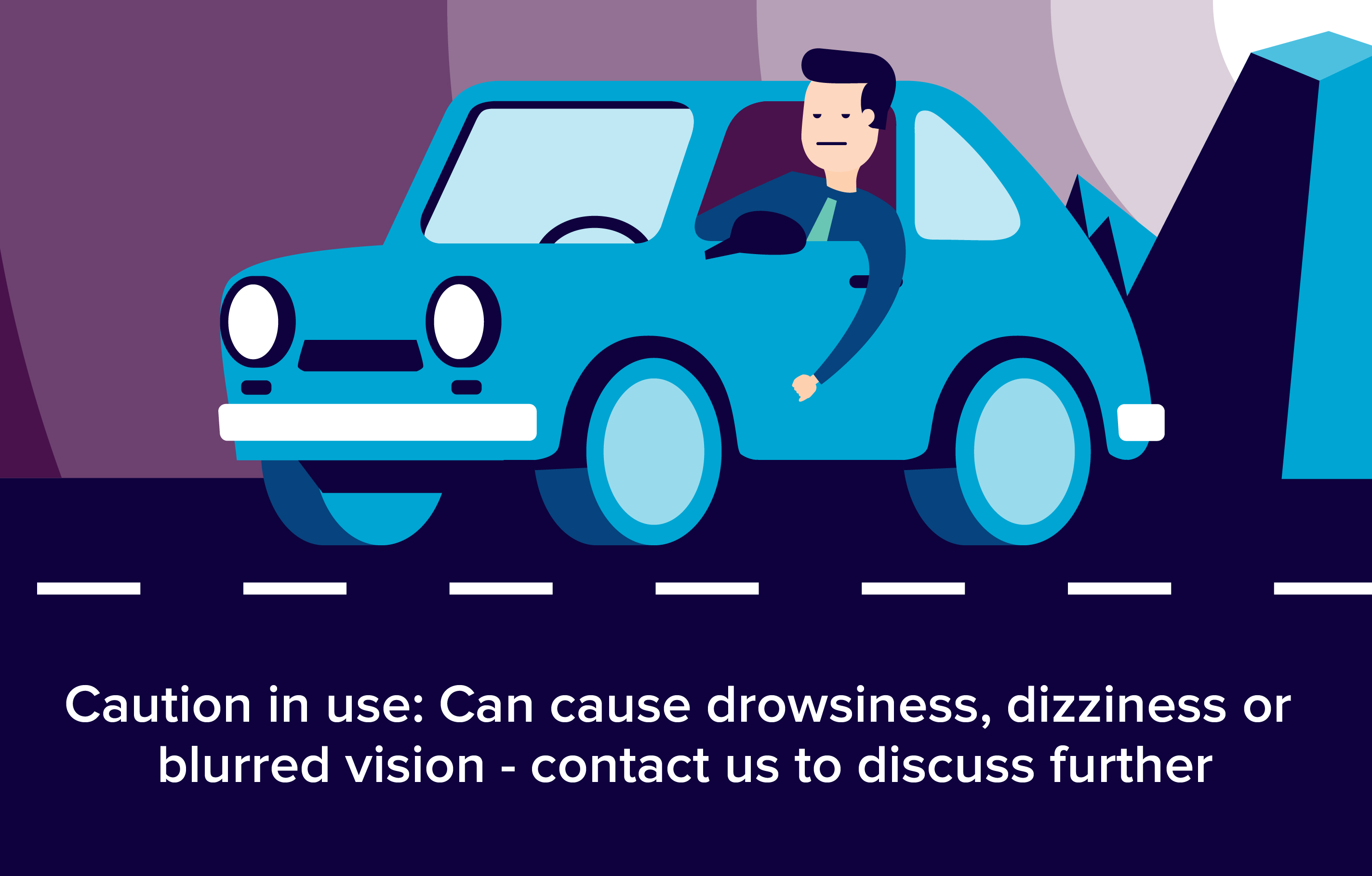Capozide tablets are used in the treatment of hypertension (high blood pressure).

Why have I been prescribed Capozide?
Capozide tablets are used in the treatment of hypertension (high blood pressure).
How does it work?
The ingredients in Capozide are captopril and hydrochlorthiazide. Captopril is a member of a group of medicines called ACE inhibitors. These work by reducing constriction of blood vessels which makes it easier for blood to flow through them. Hydrochlorthiazide is a member of a group of medicines called diuretics, or water tablets. They remove excess fluid from the body, thereby reducing pressure in the vessels.
When and how do I take it?
You should try to take Capozide at about the same time each morning. If you are elderly or you have diabetes or kidney problems your doctor will probably start your treatment at the lowest possible dose to avoid possible side-effects. They can be taken with or without food.
What’s the dose?
Usually one tablet daily.
Could it interact with other tablets?
Do not take other medicines while you are taking Capozide tablets, unless you have told your doctor or pharmacist and asked their advice. These include medicines from pharmacies for colds, coughs, hay fever or sinus problems as these may increase your blood pressure. If you are also taking anti-inflammatory painkillers (e.g. indomethacin, ibuprofen), lithium, carbenoxolone, corticosteroids, corticotrophin (ACTH), some laxatives, injections of an antifungal (amphotericin), muscle relaxants (given at the time of surgery), cholestyramine resin, colestipol, allopurinol (treatment for gout), procainamide and digoxin (a treatment for irregular heartbeats), immunosuppressants (e.g. azathioprine and cyclophosphamide), calcium salts, potassium supplements or salt substitutes containing potassium, diuretics (water tablets), other drugs which can increase potassium in your body, such as heparin, drugs that cause dilation of the blood vessels (eg. minoxidil), clonidine, drugs used in diabetes, drugs used to treat psychotic conditions and some of the older antidepressants, or any other treatment for high blood pressure, remind your doctor before taking Capozide tablets.
Herbal products should also only be taken after talking with your doctor.
What are the possible risks or side-effects?
All medicines may cause some unwanted or ‘side-effects’ in a few patients. If you experience any of the following STOP TAKING YOUR MEDICINE AND TELL YOUR DOCTOR IMMEDIATELY.
- Swelling of the hands face, lips or tongue
- difficulty in breathing
- sore throat or fever
- severe dizziness or fainting
- severe abdominal pain
- unusually fast or irregular heart beat
- jaundice (yellow skin/eyes)
- a sudden, unexplained rash or burning, red or peeling skin.
Sometimes Capozide tablets cause:
- dizziness
- itching
- rashes
- hair loss
- flushing or pale skin
- taste impairment
- anorexia
- loss of appetite
- sore mouth, mouth ulcers, dry mouth
- upset stomach
- sickness
- abdominal pain
- diarrhoea or constipation
- pins and needles
- cold extremities
- cough
- sleep disorders
- drowsiness
- headache
- respiratory problems
- generalised weakness and restlessness
If these symptoms persist or become troublesome you should tell your doctor.
Sometimes patients may feel dizzy after taking the first one or two doses of Capozide. If this happens to you, lie down till these symptoms disappear.
Other unwanted effects sometimes seen with Capozide include purpura (purplish or reddish-brown discolouration of the skin), necrotising angiitis (inflammation of the blood vessels), xanthopsia (“yellow vision”), gout, thrombocytopenia (which causes unusual bruising or bleeding), neutropenia or agranulocytosis (which may cause infection, sore throat or fever due to a lack of white blood cells).
Can I drink alcohol while taking it?
- Moderate amounts of alcohol will not affect Capozide tablets. However, you should check with your doctor whether drinking is advisable for you.
What if I’m pregnant/breastfeeding?
- Capozide is not recommended during the first trimester of pregnancy. When a pregnancy is planned or confirmed, an alternative treatment should be initiated as soon as possible. Capozide cannot be taken during the second and third trimesters of pregnancy.
- Capozide cannot be taken while breast feeding.
If you have any more questions please ask your Pharmacist.
Remember to keep all medicines out of reach of children
Please Note: We have made every effort to ensure that the content of this information sheet is correct at time of publish, but remember that information about drugs may change. This sheet does not list all the uses and side-effects associated with this drug. For full details please see the drug information leaflet which comes with your medicine. Your doctor will assess your medical circumstances and draw your attention to any information or side-effects which may be relevant in your particular case.
References:
http://www.medicines.org.uk/emc/medicine/551/SPC/Capozide+Tablets
http://www.rxlist.com/capozide-drug.htm
http://www.drugs.com/uk/capozide-50mg-25mg-tablets-leaflet.html
http://www.drugs.com/dosage/capozide.html
http://www.netdoctor.co.uk/medicines/heart-and-blood/a6369/capozide-captopril-hydrochlorothiazide/

